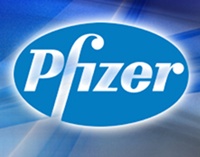Pfizer is unnamed bidder for Swedish rare disease firm Orphan Biovitrum
02 May 2015
Pfizer Inc is the unnamed bidder for rare disease specialist Swedish Orphan Biovitrum AB (Sobi), Reuters yesterday reported, citing people with knowledge of the situation.
 Without naming the suitor, the Stockholm-based company early this week revealed that it had received a preliminary takeover proposal, ''The board confirms that it has received a preliminary and conditional non-binding proposal in relation to a possible offer for all shares issued by the company.'' (See: Swedish drugmaker for rare diseases Orphan Biovitrum receives takeover offer)
Without naming the suitor, the Stockholm-based company early this week revealed that it had received a preliminary takeover proposal, ''The board confirms that it has received a preliminary and conditional non-binding proposal in relation to a possible offer for all shares issued by the company.'' (See: Swedish drugmaker for rare diseases Orphan Biovitrum receives takeover offer)
Sobi's statement came after Bloomberg reported that the company, which has been working with Goldman Sachs for some time as it prepares for potential approaches, has held on-and-off again talks with potential buyers since last year.
Analysts had opined that Biogen and Pfizer were the most likely bidders, as they already have ongoing partnership deals with Sobi.
Sobi, which is 40 -per cent held by Investor AB, the investment vehicle arm of Sweden's billionaire Wallenberg family, has a market cap of about 30.8 billion Swedish krona ($3.56 billion).
Sobi is a specialty healthcare company making drugs for rare diseases like haemophilia, inflammation and genetic diseases.
It also markets a portfolio of specialty and rare disease products for other companies across Europe, the Middle East, North Africa and Russia.
Sobi's SEK 2.6 billion ($380 million) annual revenues derive from product sales, and from manufacturing of ReFacto AF for Pfizer. (ReFacto AF is used to treat bleeding in patients with haemophilia A).
Pfizer has been lying low after it dropped its bid in May 2014 to buy AstraZeneca for £69 billion, although it had said that it would continue to look at and evaluate any other potential transaction that creates value for our shareholders and benefits patients. (See: Pfizer drops AstarZeneca takeover bid)
Pfizer's interest in rare diseases first became evident in December 2009, when the company licensed the worldwide rights to taliglucerase alfa, a product that treats the genetic disorder Gaucher disease, from Israel's Protalix Biotherapeutics, becoming a competitor to Cambridge, Massachusetts-based Genzyme, which markets Cerezyme as a treatment for Gaucher disease.
Pfizer established a rare disease unit in 2010 and now has a portfolio of 22 drugs for treatment in the areas of haematology, neuroscience, inherited metabolic disorders, pulmonology, and oncology.
In 2012 Sobi extended a supply agreement with Pfizer for ReFacto/Xyntha until 2020 in addition to an agreement to return the co-promotion rights for the Nordic region for ReFacto to Pfizer for a payment of $47.4 M.
Although more than 6,000 diseases are classified as orphan diseases, fewer than 10 per cent of them are directly targeted by specific drugs. The pharmaceutical industry traditionally has invested little in rare-disease research, and its scientific advances in this field have proceeded slowly as a result.



















